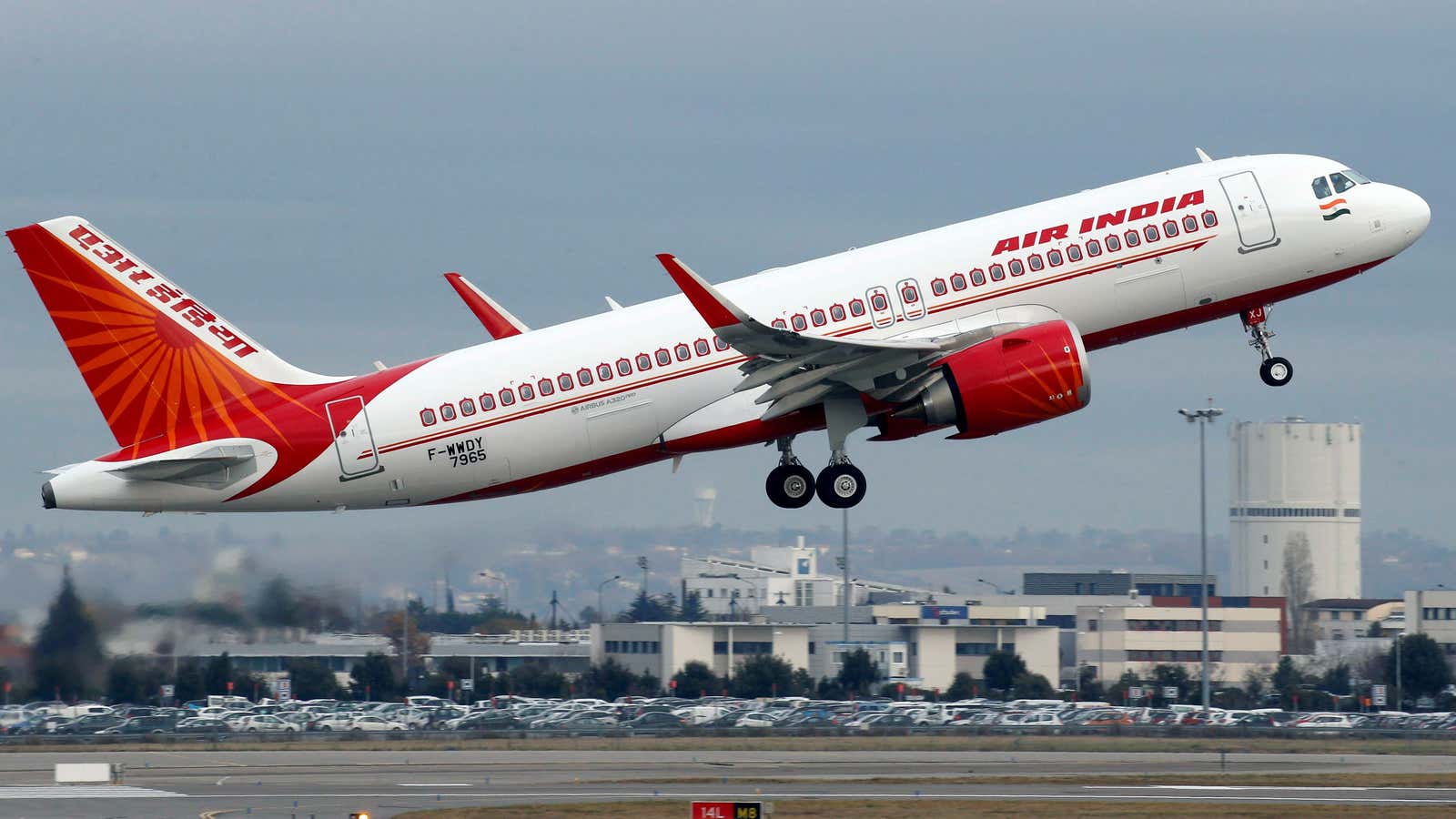The search to find a new buyer hasn’t come to an end for India’s indebted national carrier.
On Friday (Oct. 1), Bloomberg reported that a panel of ministers had accepted a recommendation to accept a bid from the country’s 150-year old Tata Group to take over debt-laden Air India. But within hours the Narendra Modi government issued a statement calling the report “incorrect.”
Tata Group declined to comment.
In 2019, after a failed divestment attempt, the Modi government decided to sell a 100% stake in Air India along with its subsidiary Air India Express. It has also decided to sell the government’s entire stake of 50% in joint venture ground-handling company Air India SATS Airport Services.
Last month, the salt-to-software conglomerate—which has reportedly placed the highest bid—and a private group led by Ajay Singh, the chairman of low-cost airline SpiceJet submitted their final proposals for buying Air India.
As of February 2021, the airline had around 60,430 crore rupees (about $8.2 billion) of debt, including the portion that has been transferred to a special financial vehicle set up as part of the divestment process. However, according to the bidding terms, the winning bidder will only be required to assume part of the debt.
Tata’s aviation ambitions
The group pioneered commercial flights in India by founding an airline in 1932 under the name Tata Airlines. The carrier then was renamed Air India in 1946 and in 1953 it was nationalised. If Tata were to win the bid, it would mark a homecoming for the airline.
Even though the government hasn’t made its decision, aviation experts Quartz has spoken to said the Tata bid was compelling, given the group’s deep pockets and long-term horizon.
“Tata is the perfect bidder as the group have its finances intact and when they invest in a business, they always plan for a long-term period such as 20-30 years,” said Mark Martin, founder and CEO at aviation consulting firm Martin Consulting, a view echoed by another aviation specialist Quartz spoke to.
The confidence in the group comes despite the fact that Tata’s current ventures in India’s aviation space have been facing losses. At present, Tatas have an 83.67% stake in AirAsia India and owes 51% in Vistara, a joint venture with Singapore Airlines.
“In aviation, there is a 10-year break-even point for making profits. It’s been just around six years since the Tata Group has invested in AirAsia and Vistara,” said Martin.
